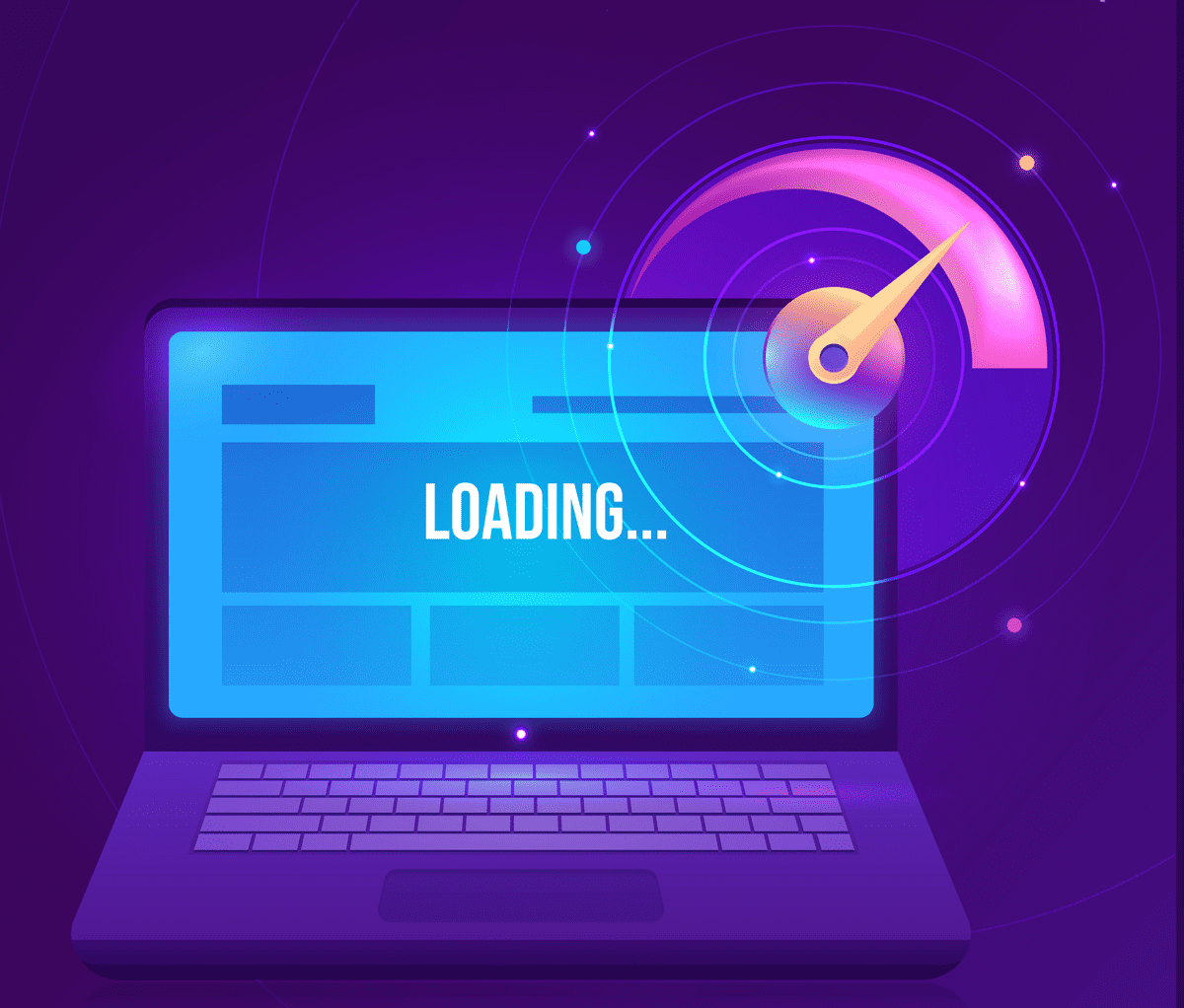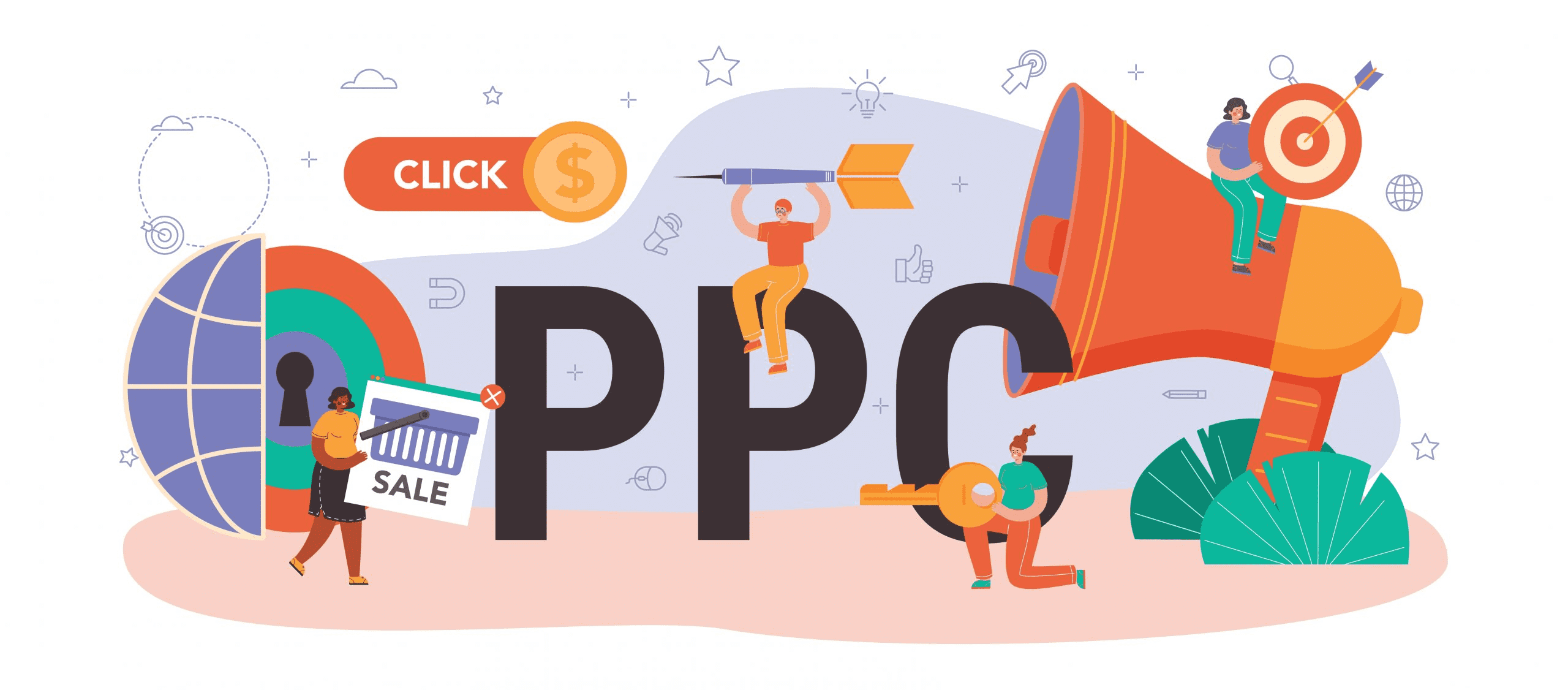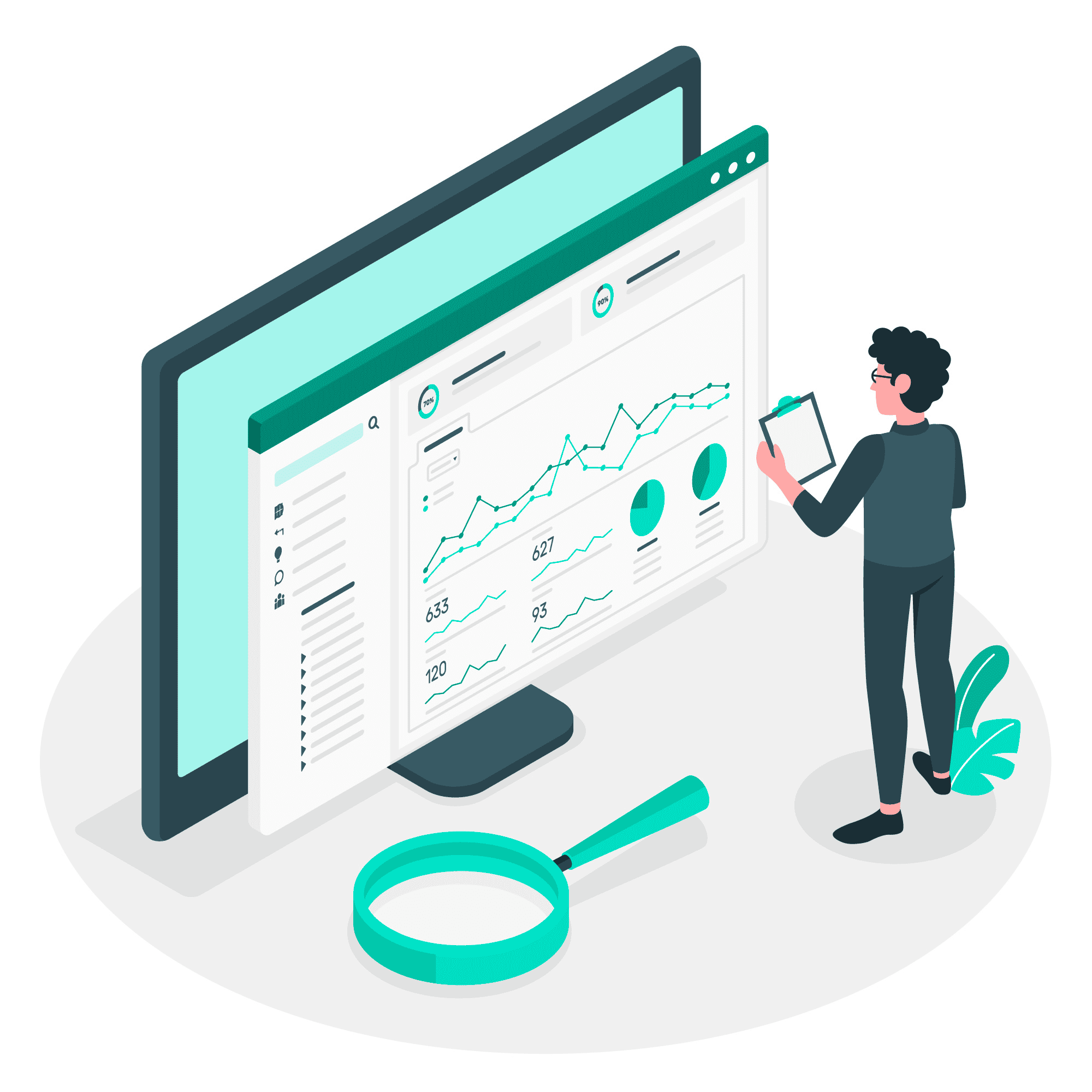Have you visited websites that are grindingly slow? If you’re like us, it just makes your blood boil when things get too slow on the internet. Same is the case for most of the internet users, and this has a significant impact on any business that operates a website.
How can this affect your business? Short answer is that it impacts your website’s search engine visibility, visitor bounce rates, and conversion rates.
Before we get into those details, let us go through some important facts.
Website Speed Facts
Fact: Well over half of internet traffic in North America comes from mobile devices.
On average, mobile internet is slower than your ethernet-powered workstation. Most users use 4G mobile internet – which is OK but not as fast as regular internet. A sizable number of users still use 3G! Now their internet can be really slow by today’s standards.
Things may change with the advent of 5G internet in future, but that will take some time. Even then, mobile internet speed will always lag behind good old wired internet.
Moreover, processing power and RAM of your typical phone is much smaller than of a desktop computer, and this will have some implications for things like website animations.
Fact: Half of the mobile users say that their greatest qualm with mobile browsing is when websites are too slow to load.
Quick math tells us that at least a quarter of internet users really hate when things get slow on their device. This study was conducted in 2015. A share of mobile users has grown since then, so these numbers are likely up significantly by now.
Fact: Users abandon websites that load too slowly
Perhaps we’re being a bit too wordy here. Check out this graph that represents aggregate data from Pingdom.com:
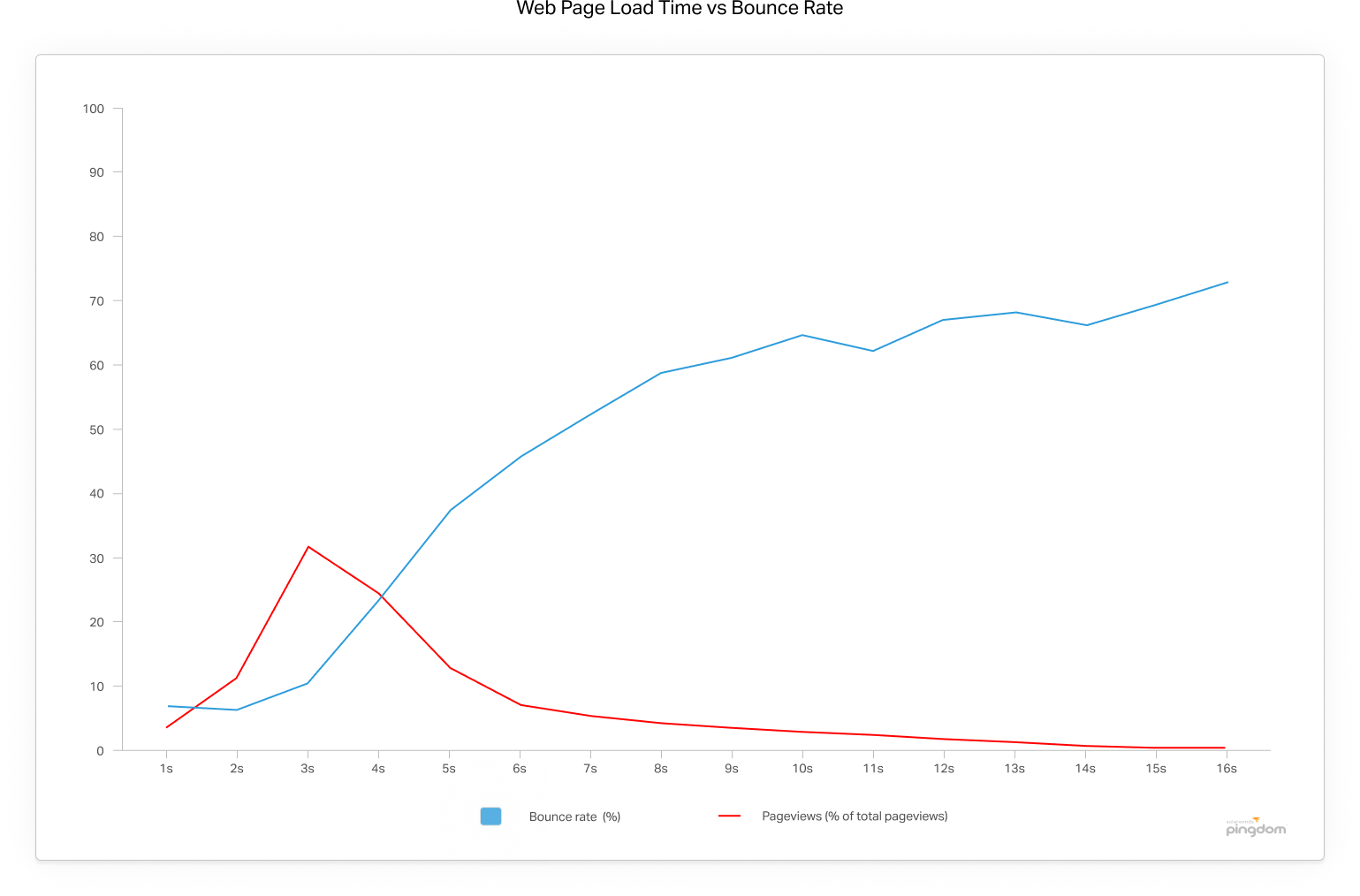
Let’s analyze what’s going on here. Red line represents how many pages a person viewed, and the blue line represents the percentage of people that abandoned the site. We can see clearly something bad is happening to websites that take more than 3 seconds to load: visitors tend to view fewer and fewer pages, and they start leaving the website in huge percentages (aka bounce rate).
Here’s another chart from pingdom.com to illustrate the bounce rate:
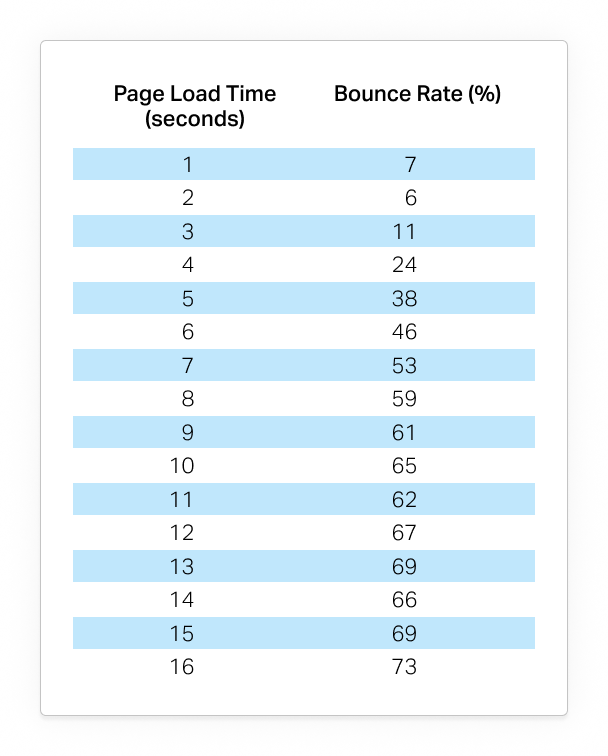
As you can see, if you keep the page load time under 3 seconds you only lose a small number of visitors, but push that to over 5 seconds and the bounce rate jumps to almost half the visitors!
This is why your pages should load below 2-3 seconds on as many devices as possible. Fast loading on your speedy office 100 MBPS internet is not enough. Many people are viewing websites on slow connections, including their phones. It’s important that your website can address those users as well.
Fact: Website speed affects your organic rankings in Google
You may know that Google uses a highly complex algorithm to determine how to rank websites when users search for particular search phrases. There are thousands of details that factor into the ultimate decision, but website speed is definitely a large factor as Google itself has suggested.
The main point that Google has been pushing for years is user experience. If Google determines that your website provides a good user experience, it will rank you higher. Did we mention users hate slow websites? Consequently, Googlebot also hates slow websites, so all other things being equal, slower sites will be ranked lower.
Organic traffic from Google can be a real bounty because the traffic itself is absolutely free. It takes a lot of work to get rankings high enough to generate good traffic though, and most people will be paying an SEO agency to get them those rankings. Meanwhile, it makes sense to make sure the website is fast and performant – both to help the SEO efforts, and to improve conversion rates of visitors coming from Google.
Fact: Page speed affects your Google Ads Budget
You may not have expected this one. Let us explain.
Google search ads are one of the most effective and immediate-results forms of online marketing because it taps into users that are actively searching for something. There can be fierce competition for keywords that target lucrative search phrases, and Google uses an auction system to price the cost-per-click (CPC).
However, bidding price is not the only factor that goes into determining who gets the top spot in the search results. Google cares a lot about relevance and user experience, so they use something called a quality score, which evaluates your ads and your landing page to make sure they’re relevant and provide appropriate user experience.
It is here that page speed gets factored into the user experience. A faster landing page will have a higher quality score, which means that you would typically need to bid a lower amount to get to the higher, more lucrative spots in the ads.
What is a conversion rate and how does website speed affect it?
Conversion rate is the fraction of your site visitors that your website converts to either buyers or leads, depending on the type of a business you’re running. You may have multiple kinds of conversion actions on your site such as the visitor buying an actual product, signing up for a newsletter, submitting a contact or an appointment request form, etc.
The point is that you need to engage your site visitors meaningfully in order to turn them into clients and generate profit. But if your site is slow, it will frustrate users and cause them to leave your website (bounce). Users will also tend to interact with fewer of your pages on average (low pages per visit). End result is that your conversion rate will suffer, causing you to generate less revenue than you could have with a faster website.
Conclusion: a faster website means more clients for your business
We have established that a faster website can decrease your bounce rate, increase the conversion rate, improve your search engine rankings, and even help your pay-per-click or search ads campaigns.
But how do you actually make sure your site is as fast as possible?
At EZ Digital, we take pride in developing blazing-fast websites for our clients, and we take many details into consideration to achieve this goal.

